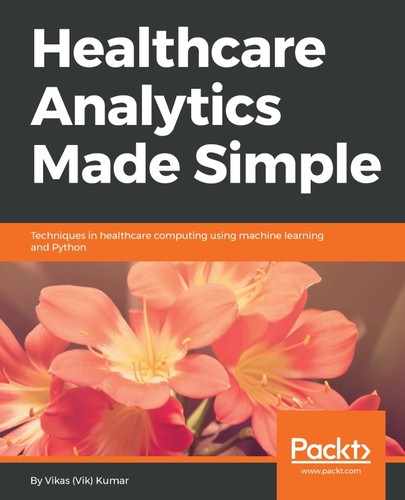As you know, scientific progress is never complacent. When a result is obtained, it is only a matter of time before people begin wondering how to improve upon it. The same is the case with cardiovascular risk assessment. Key questions that were asked include the following:
- What are some other risk factors that are as (or even more) important than the five risk factors in the Framingham Risk Score?
- Can the newer machine learning algorithms outperform statistical models, such as regression, to yield higher discriminability and performance?
One study, by the University of Nottingham in England, addressed those questions (Weng et al., 2017). It was a prospective study that monitored the electronic medical records of 378,256 patients from the year 2005 to 2015. For each patient, they used data on the 8 risk factors included in the Framingham Risk Score, as well as 22 additional variables that were thought to be correlated with cardiovascular risk from previous literature and consultation with physicians. The 22 additional variables encompassed information such as socioeconomic status; history of other illnesses including kidney disease, arthritis, and atrial fibrillation; newer lab tests such as C-reactive protein and gamma-glutamyl transferase; and ethnicity. They trained four types of machine learning algorithms on the patient data – logistic regression, random forest, neural networks, and gradient-boosting machines. All four of the algorithms improved performance over the baseline risk prediction algorithm; in fact, the neural network algorithm predicted 355 more correct cases of cardiovascular events than the established algorithm. As they looked at the variables of top importance, while many resembled the Framingham criteria, many were new. Ethnicity appeared in the top three variables in all of the algorithms. Socioeconomic status (Townsend Deprivation Index) appeared in the top ten for all four algorithms. Chronic kidney disease was also found to be linked to cardiovascular risk. For cardiovascular risk, it is clear that machine learning has enriched our knowledge of predicting cardiac events.
